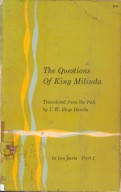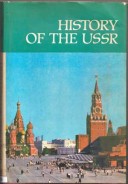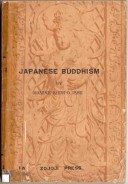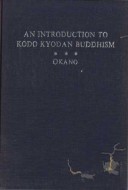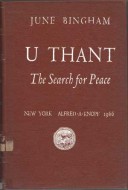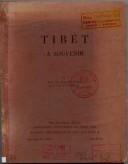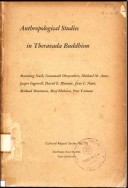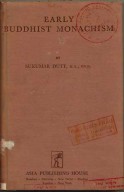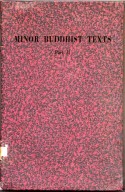Tìm Sách
Sách tiếng Anh-English >> The Questions Of King Milinda Part I
Thông tin tra cứu
- Tên sách : The Questions Of King Milinda Part I
- Tác giả : T. W. Rhys Davids
- Dịch giả :
- Ngôn ngữ : Anh
- Số trang : 320
- Nhà xuất bản : Dover Publication, Inc. New York
- Năm xuất bản : 1963
- Phân loại : Sách tiếng Anh-English
- MCB : 12010000005468
- OPAC :
- Tóm tắt :
THE QUESTIONS OF KING MILINDA
Translated from the Pali by
T. W. Rhys Davids
In two parts
Part I
Dover Publication, Inc.
New York
INTRODUCTION
The work of which a translation is here, for the first time, presented to the English reading public, has had a strange and interesting history. Written in Northern India, at or a little after the beginning of the Christian era, and either in Sanskrit itself or in some North India Prakrit, it has been entirely lost in the land of its origin, and (so far as is at present known) is not extant in any of the homes of the various sects and schools of the Buddhists, except only in Ceylon, and in those countries which have derived their Buddhism from Ceylon. It is true that General Cunningham sayss that the name of Milinda ‘is still famous in all Buddhist countries’. But he is here drawing a very wide conclusion from an isolated fact. For in his note he refers only to Hardy, who is good evidence for Ceylon, but who does not even say that the ‘Milinda’was known elsewhere.
CONTENTS
INTRODUCTION
The Simhalese version of the Milinda
Buddhaghosa’s four references to it
MSS, and edition of the text
King Milinda the same as Menander
Notices of him in classical writers
His coins
His birthplace, Kalasi, probably= Karisi
The author not the same as Nâgârguna
Passages in the Pitakas referred to silently
Pâli books, &c., referred to by name
Pitaka passages quoted
Length of the Pitakas
Results of these comparisons
Differences between our author and the Pitakas
Proper names outside the Pitakas
Differences of language between our author and the Pitakas
The Milinda as a work of art
TRANSLATION OF THE TEXT
BOOK I. the Secular Narrative
Description of Sâgala
Previous births of Milinda and Nâgasena
Milinda’s greatness and wisdom and love of disputation
Birth story of Nâgasena
His admission as a novice into the Order
His conversion
His attainment of Arahaship
Milinda confutes Âyupâla
Nâgasena arrives; his character
Milinda goes to him
BOOK II. The Distinguishing Characteristics of Ethical Qualities
Individual and name
The chariot simile
The riddle of sensority
(Interlude) How kings and scholars respectively discuss
No soul in the breath
Aim of Buddhist renunciation
Re- incarnation
Wisdom and reasoning distinguished
‘Virtue’s the base’
Faith
Perseverance
Mindfulness
Meditation
Continued identity and re-individualisation
Wisdom and intelligence distinguished
Time
Origin and intelligence distinguished
Is there a soul?
Thought and sight
Contact, sensation, and idea
BOOK III. The Removal of Difficulties
Rich and poor
Renunciation again
Nirvâna and Karma
Difficulties of various kinds as to transmigration, indivuduality, and the
Buddha
BOOK IV. The solving of Dilemmas
Milinda finds dilemmas in the Holy Writ
And takes the Buddhist vows
Third meeting between him and Nâgasena
1st Dilemma. If the Buddha has really quite passed away, what is the good
Paying honour to his relics?
2nd Dilemma. How can the Buddha be omniscient, when it is said that he reflects?
3rd Dilemma. Why did he admit Devadatta to the Order, if he knew of the schism he would create?
4th Dilemma. Vessantara’s earthquake
5th Dilemma. King Sivi
7th Dilemma. Difference in prophecies as to the duration of the faith
8th Dilemma. The Buddha’s sinlessness and his sufferings?
9th Dilemma. Why should the Buddha have meditiated?
10th Dilemma. Why did the Buddha boast?
11th Dilemma. How could the Buddha revoke regulations he had made?
12th Dilemma. Why did the Buddha refuse to answer certain questions?
13th Dilemma. Contradictory statements by the Buddha as to fear
14th Dilemma. How can Pirit cure disease?
15th Dilemma. How could the evil one turn people against the Buddha?
16th Dilemma. Contradiction as to conscious crime
17th Dilemma. Contradiction as to the Buddha’s wish to be the chief
18th Dilemma. How could a schism have arisen in the Buddha’s life?
19th Dilemma. Why do members of the Order accept reverence?
20th Dilemma. The evil results of preaching
22nd Dilemma. Was not the Buddha once angry with Sudinna?
23rd Dilemma. The tree talking
24th Dilemma. The Buddha’s last meal
25th Dilemma. Adoration of relics
26th Dilemma. The splinter of rock
27th Dilemma. Contradictory description of the Samana
28th Dilemma. Buddha’s boasting
29th Dilemma. How can the kind punish others?
30th Dilemma. Was not the Buddha angry at Kâtumâ?
31st Dilemma. How could Moggallâna have had miraculous powers seeing
That he was murdered?
32nd Dilemma. Why should the rules of the Order be kept secret?
33rd Dilemma. Contradictions about falsehood
34th Dilemma. Did not the Omniscient One once doubu?
35th Dilemma. Suicide
36th Dilemma. Love to all beings
37th Dilemma. Wickedness and prosperity
38th Dilemma. Women’s wiles
39th Dilemma. Did not the Arahats once show fear?
40th Dilemma. Did not the Omniscient One once change his mind?
Appendix. Devadatta in the Gâtakas
Addenda et Corrigenda
Index f Proper Names
Index of Subjects
Transliteration of Oriental Alphabets adopted for the Translations of the Sacred Books of the East
 Facebook
Facebook
 Google
Google
 Google+
Google+
